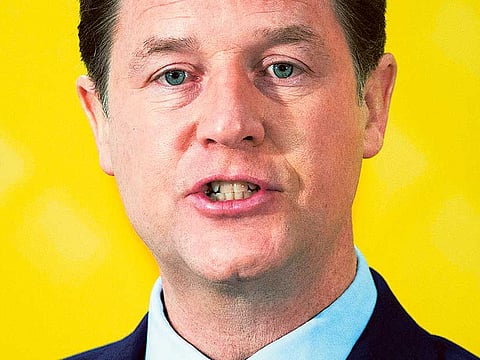Solution lies on land, not at sea
Without hope at home, thousands will continue to try to reach Europe

Hundreds dead last week. Hundreds dead this week. This humanitarian crisis on the southern shores of Europe is not new — more than 22,000 people have died trying to cross the Mediterranean since 2000. But we now appear to be seeing a sharp increase in the numbers attempting the perilous crossing, with the result that more people than ever are dying.
It is all too easy to forget that they are human beings. Many of those making the crossing, as Save the Children has reminded us, are children. Yet, the language the media and politicians use to describe them (not “people” but “migrants”) has the effect of making them seem less human. A problem without a solution. We have failed these people again and again, and we desperately need to rethink our approach.
The European Union’s (EU) decision to end routine search-and-rescue operations in the Mediterranean last year was taken with good intentions. No one expected the number of deaths to fall to zero, but there was a view that the presence of rescue ships encouraged people to risk the crossing. That judgement now looks to have been wrong. That is why the Liberal Democrats have called for an urgent review of the EU’s policy and the funding available for search and rescue. We need to work closely with the Italians to put in place better arrangements. The Italian Prime Minister, Matteo Renzi, is absolutely right to say that Italy cannot and should not have to face this crisis alone.
Secondly, we need coordinated action against the people traffickers. We should be supporting the security forces in Libya, Egypt and Tunisia to catch the gangs that operate this murderous trade and seize their boats while they are still in port. We should be sending our security experts to work with theirs. At the moment, the focus is on minimising deaths at sea. It should be on bringing maximum disruption to the organised criminal networks that profit from those deaths.
These ideas will be under discussion today at the summit of European leaders in Brussels. But let us not fool ourselves that a more comprehensive search-and-rescue mission or a war on the people-smugglers alone will solve the problem. While conditions in Libya and elsewhere remain so desperate, there will be many thousands of people who judge that the chance of a better life in Europe — however slim — is a risk worth taking.
The solution, ultimately, is to be found not at sea, but on land. We need to change the minds — and the lives — of the people who feel they have no choice but to flee. This is where we should be asking much, much more of our partners in the EU. We need a level of coordinated ambition that frankly we rarely see from the EU these days.
We need to change the minds – and the lives — of the people who feel they have no choice but to flee
Only by attacking the root cause of the problem — instability on the southern border of Europe — can we provide people with positive reasons to stay. That requires a coordinated, generational effort to build stable governments and thriving economies across north Africa. It means aid, it means investment, and it means a rethink of the way that the EU wields its influence outside its borders. This will have to include Europe swallowing its protectionist instincts and opening its markets to the countries to the south. Two thousand years ago, north Africa provided Rome with most of its wheat. The Mediterranean should once again be the conduit for trade, not a protective barrier for European markets. What is Britain’s role in this? We are soon to become Europe’s second largest economy and we are the destination for many of those seeking a better life. I believe we should be in the driving seat of these discussions, using our economic and diplomatic strength to force other countries to think strategically and come up with solutions. But we should also be using our own substantial aid budget to direct help to where it is needed: building a sustainable future for those on the borders of Europe. It is richly ironic that United Kingdom Independence Party (Ukip) should seek to blame the government for deaths in the Mediterranean when it is the party that would slash our overseas aid budget, removing any hope of a sustainable solution.
Ours is a multifaceted approach: A coordinated EU relief effort, a European strategy for north Africa, intelligent use of our international development budget, and targeted efforts to catch and disrupt the people traffickers. If instead we detach ourselves from Europe in the way that Ukip and the Right wing of the Conservative party wants, we will be washing our hands of the people who desperately need our help.
— Guardian News & Media Ltd


